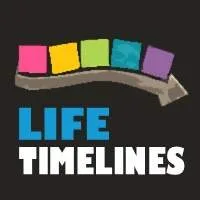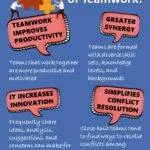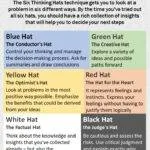
Life Timelines Activity
Life Timelines is an activity that helps people get to know each other better, especially some of the most important experiences in a person’s life. This exercise is a great way to get people to share their most important experiences and memories with each other, therefore letting people get to know each other better.
Distribute a sheet of paper and some writing/drawing utensils to each player. Enough time needs to be given to each person to reflect upon their life and to draw a life timeline.
You can form groups of 3-4 people, or you can keep everyone in one very large group.
Explain to all players that they will be creating a timeline of their lives — the high points, the low points, and how things have changed over time. Key places, events, and people might be part of the timeline.
Each person is free to draw pictures or write anything they like to tell a story about their lives. There is no right or wrong way to do this; people can draw a graph of how happiness has changed over time corresponding to key events, or can show any other variable on the y-axis besides happiness.
Some players may choose to divide their lives into meaningful chunks (e.g., early childhood, childhood, teenage years, college, young adult, adult, etc.) or according to significant events.
After each person is given enough time to draw a life timeline, allow players to share them with each other. Each person can share with their group, or if you don’t wish to make sharing mandatory, you can ask for some volunteers to come to the front of the room and share their timeline stories with the whole group.
Moment of Reflection
At the end of the activity, allow a few minutes for people to reflect on the benefits of exercise.
- How does it help you identify the most significant moments in your lives?
-How do I feel after doing this review? - How do I feel about information shared by other people?
The topics of this publication: integration, interactions, self, reflection, foster relationships, emotions, mindfulness, empathy, trust, active listening


